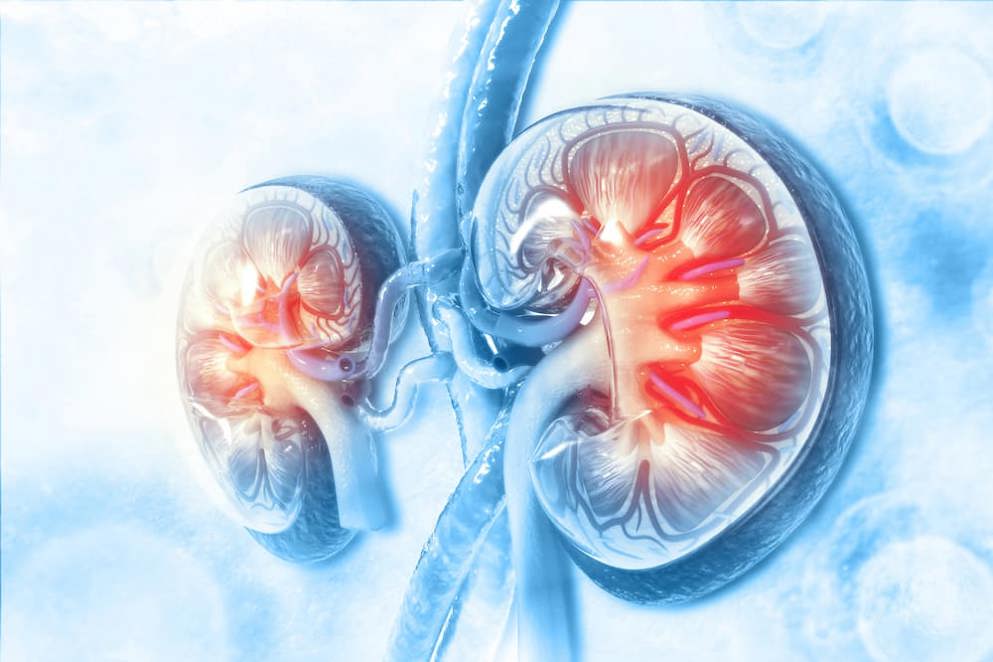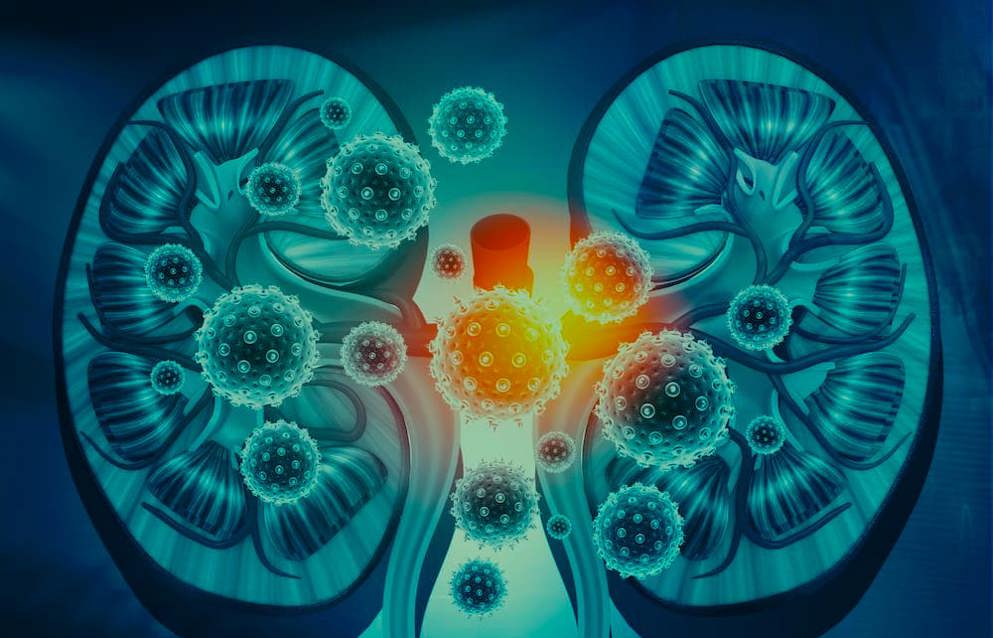Glomerulonephritis
Glomerulonephritis
Glomerulonephritis encompasses a group of diseases that are characterized by inflammatory glomerular processes and clinically usually present with a nephritic and / or a nephrotic syndrome, as well as a deterioration of the renal function. Often, the diseases are accompanied by arterial hypertension and severe edema. In many cases however, the clinical symptoms are very mild or missing in the early phase of disease and therefore lead to a delayed diagnosis only after an impairment of renal function has developed. Urinalysis shows abnormalities in the very early phases of glomerulonephritis and should be performed in all patients, as soon as any evidence of renal involvement is present. Glomerulonephritis may occur primarily in the glomeruli, or present as renal involvement in the context of systemic diseases, most often vasculitis. In some cases, a symptomatic therapy is sufficient, while in other patients, a glomerulonephritis may represent as a medical emergency, which should be immediately and aggressively treated in order to prevent loss of renal function. Here we summarize the most important entities of glomerulonephritis, focusing on the pathogenesis, diagnostic tools and treatment options. The primary goal is the early diagnosis and a targeted, effective treatment of these patients.
Read abstract on library site Access full article




